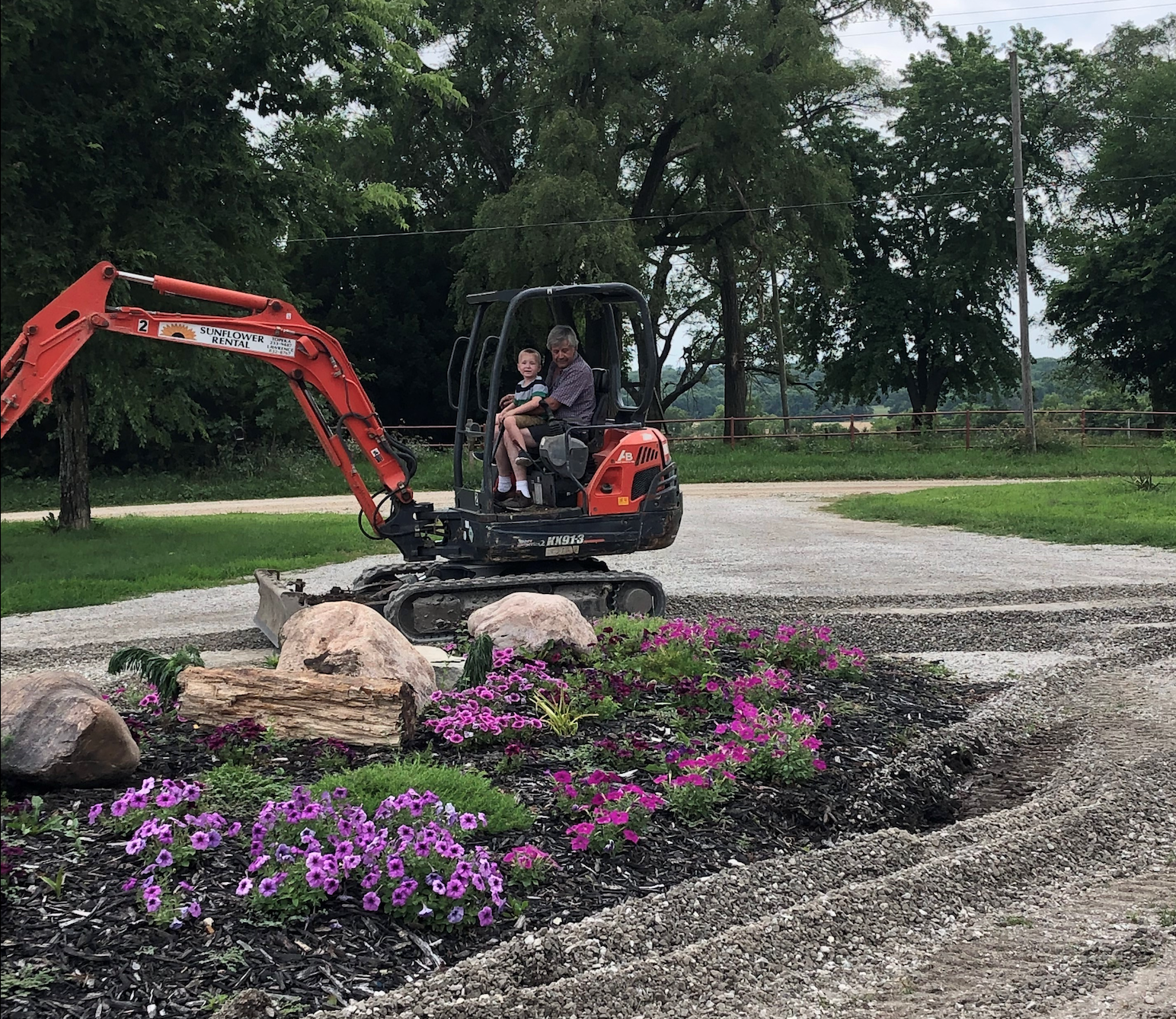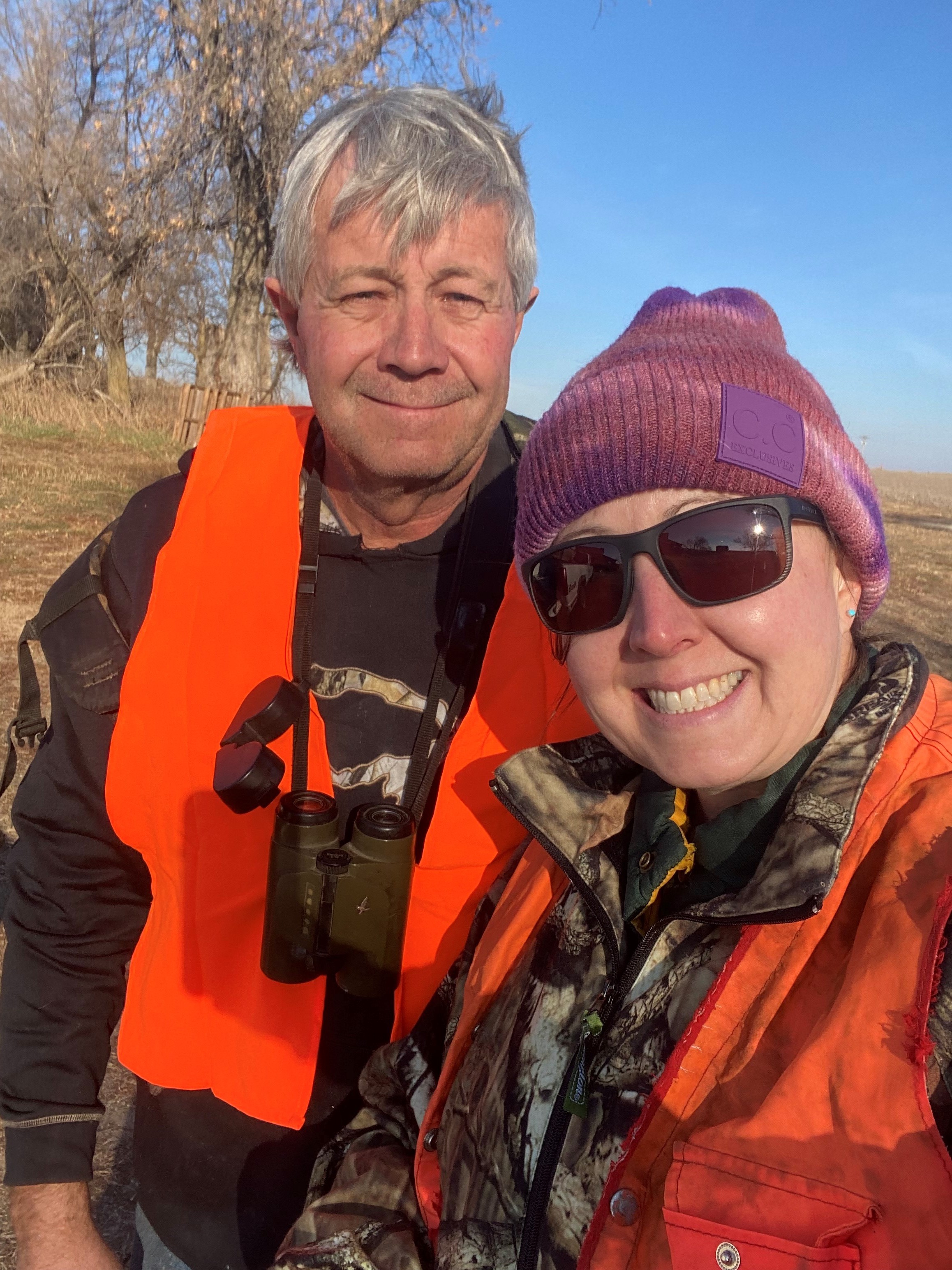Meet Shonda Atwater: Bringing a Renaissance of Respect Back to the Trades

Growing up, I was greatly influenced by my father, Eddie Anderson, who is an amazing speaker, mentor, church leader, project estimator, construction supervisor and a jack of all trades. Today, he’s highly respected by his peers, community and church. But in high school, he was told, “Eddie, you don’t need to go to college or get a degree to be successful. You can just work off your back.”
Because of this advice he did just that — after high school, he took over his family’s welding business, learning the trade from his father through what was essentially an unregistered (informal) apprenticeship. Through life experiences, he learned many other valuable skills along the way, including how to build log homes from live trees. He can build anything – driveways, roads, and charcuteries boards. He recently built a set of stairs (to code) for my basement with leftover wood in a single afternoon!

My dad is the smartest man I know, but he was told his whole life he didn’t need degrees or certifications. He was made to feel his work was “less than” the work of many others, and that he wasn’t smart enough to choose the college route. In my new job for the Kansas Department of Commerce, as the director of internships and apprenticeships, I’m dedicated to changing that perception. I want to create a renaissance of respect for the skilled trades, to show the world how vitally important these workers are to our economy and how important it is that they have access to the proper training and education — as important and imperative as these things are for a doctor, lawyer or teacher. Our economy will not be able to keep growing without these skills.
The world has changed so much since my dad grew up, and in my new role, I want to keep workforce development evolving. Kansas is behind much of the world in the use of apprenticeships as a way to gain career skills. Had my dad been able to participate in a formal registered apprenticeship program after high school, he’d have received on-the-job training aligned with formal technical instruction, mentorship and a structured wage progression as he mastered skills. That would have legitimized his accomplishments and would have propelled him faster and higher in his career.

To fill areas of high demand in our workforce, the Kansas Department of Commerce plans to get more apprenticeship programs established in fields that aren’t typically thought of for this type of training, such as health care and information technology. We also need to create more ways for journeyman apprentices to earn associate degrees as an outcome of their efforts, which will allow them to continue building upon this training throughout their lifetimes.
We also want to let parents and educators know that apprenticeship models can be a pathway for a young person to later earn a college degree — if that’s important to them. Providing opportunities to award college credit for apprenticeship training can make college systematized, obtainable and affordable. It just makes sense.
Once they finish their training, journeyman apprentices are expected to mentor students of their own. Teaching someone else a skill is the ultimate way to prove you’ve learned it. There is a whole subset of working professionals out there who are expert teachers in practice, but they aren’t recognized as such. That’s exactly what my dad became. He may not be a certified educator, but he’s earned the respect of many by teaching employees skills such as how to run a forklift or paver. As we enhance our state apprenticeship program, we will recognize successful mentor-to-student training as well.
I always remind parents that there are many paths to success. If you’d like to learn more about how a registered apprenticeship could prepare your child — or even yourself! — for a new career, please visit our website to learn how to start the process.
If you work for a business that is interested in establishing a registered apprenticeship program as a way to train and recruit new employees in your industry, learn more at: https://ksapprenticeship.org/businesses/apply/.
And if you run into my dad at Sunflower Paving, be sure to tell him his daughter is so very proud of him.
Shonda Atwater is the new Director of Internships and Apprenticeships for the Kansas Department of Commerce. She grew up in Colorado, where she earned an undergraduate degree in agriculture and resource economics and agricultural education from Colorado State University. Life brought her to Kansas, where she earned a master’s in agricultural economics from Kansas State University. Previously, she worked as the director of the apprenticeship for Kansas City’s Metropolitan Community College. She is a proud mother of two and will never forget she started her career driving dump trucks for her dad’s asphalt business.
Photo by William R. Pierce Photography.



